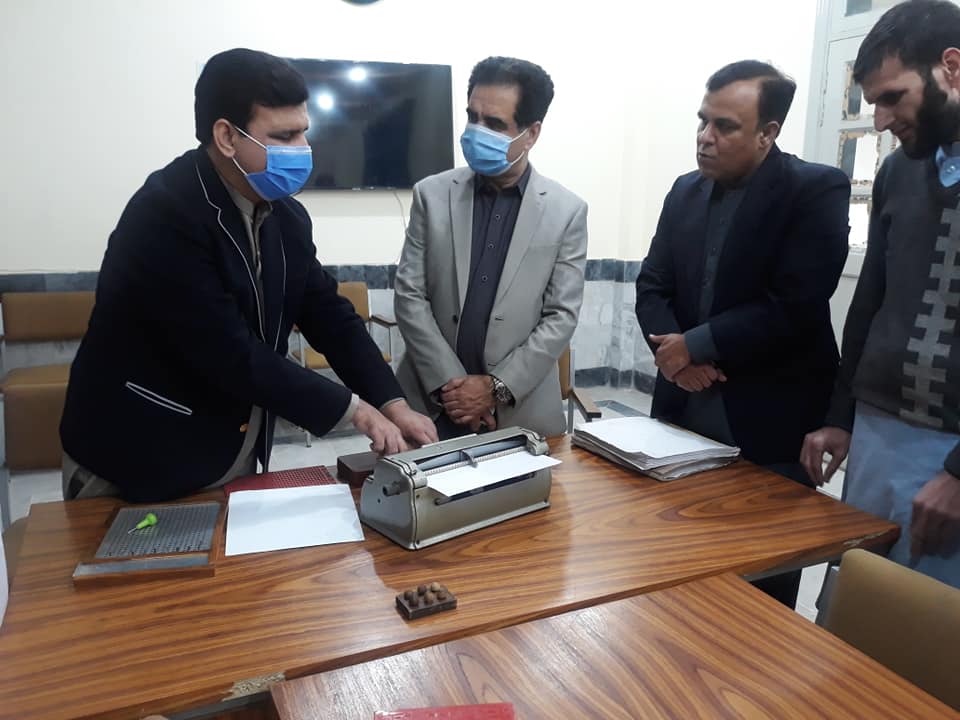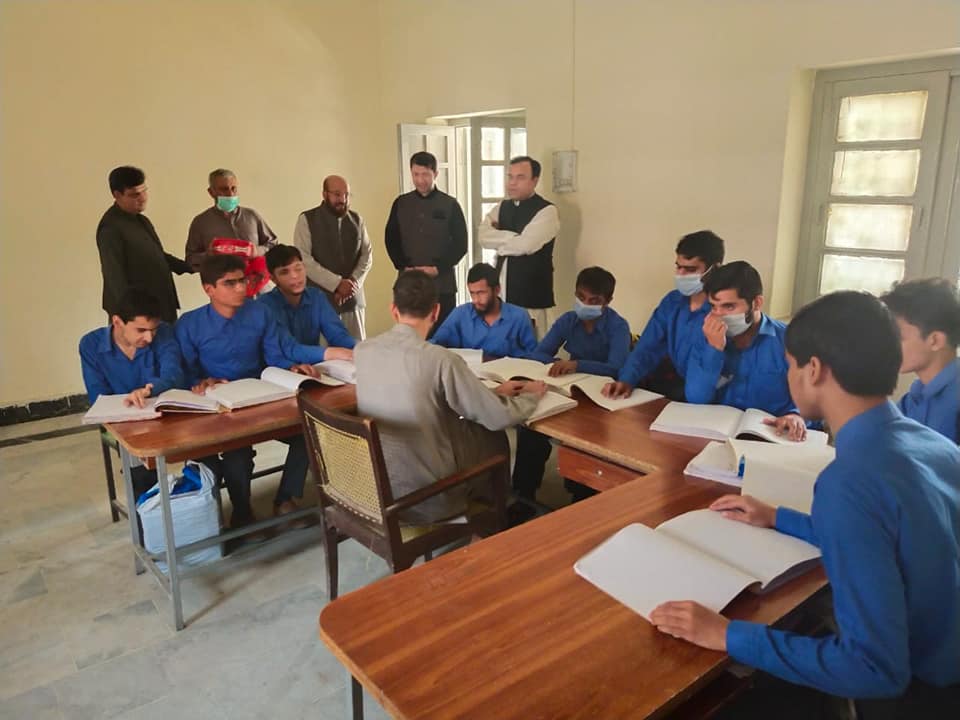PESHAWAR: Pakistan’s northwestern Khyber Pakhtunkhwa province plans to set up its first printing press for Braille to help visually impaired people across the province, said a minister while talking to Arab News on Friday.
Braille printers are impact devices that are used to create tactile dots on special paper, making written documents accessible to sightless individuals.
“We have done our homework and set aside Rs40.3 million to launch the printing press within a month,” said Minister for Social Welfare, Dr. Hisham Inamullah Khan.

Awais Alam, a visually impaired person, types on a machine as other people watch, at the Government Institute for the Blind in Peshawar on November 19, 2020. (Photo courtesy: Government Institute for the Blind, Peshawar)
Habib Khan Afridi, director social welfare, special education and women empowerment, told Arab News that the province lacked the facility and relied heavily on a printing press in Lahore.
“We have developed customized software in Urdu and Pashtu languages that will make writing material more use-friendly to blind persons,” Afridi said.
“While the number of unregistered Persons with Disabilities [PWDs] may be higher, about 148,000 of them are in the provincial database,” he continued. “These not only include people with visual, hearing and physical impairments but also individuals with intellectual disabilities.”
Afridi said that PWDs were entitled to certain benefits, such as two percent quota in all government jobs and Rs3,000 monthly mobility allowance after getting employed.

A group of visiting officials inspect a class at the Government Institute for the Blind in Peshawar as visually impaired students read their textbooks on October 20, 2020. (Photo courtesy: Government Institute for the Blind, Peshawar)
Awais Alam, a visually impaired teacher at Peshawar’s Government Institute for the Blind, lauded the initiative, calling it a “huge favor” for thousands of people.
“According to my estimate, there are more than 10,000 sightless people in this province,” he said. “We import curriculum books from Punjab and Sindh. In fact, some of us had to move to other provinces due to the unavailability of textbooks and other facilities. This should change now since the new initiative will help resolve one of our pressing problems.”
Alam, who is also pursuing his MPhil degree in political science, urged parents not to ignore their differently abled children and focus on their education.
“I want to request parents to bring their visually impaired children to blind schools where they can be educated and turned into useful citizens,” he said.















